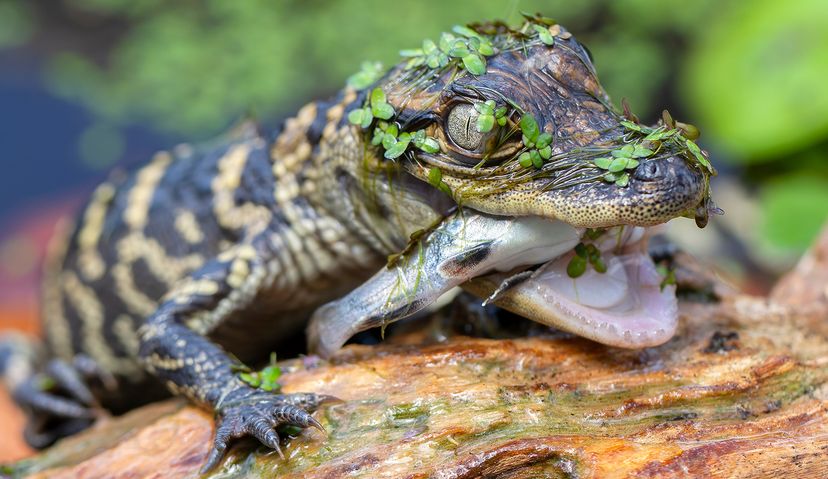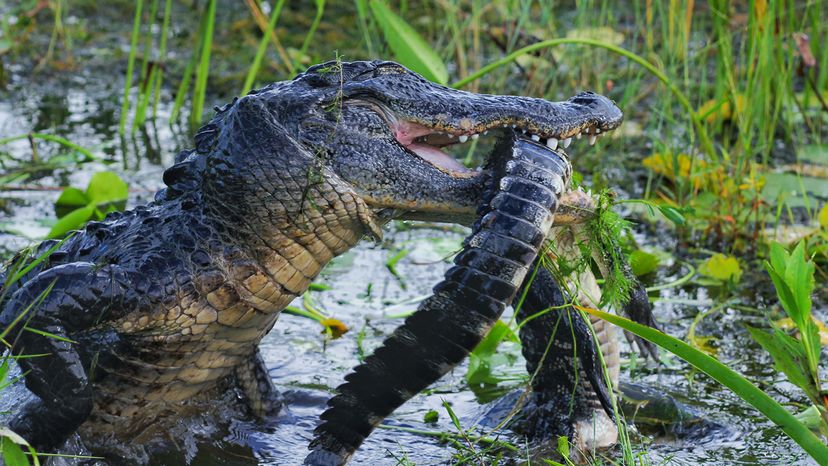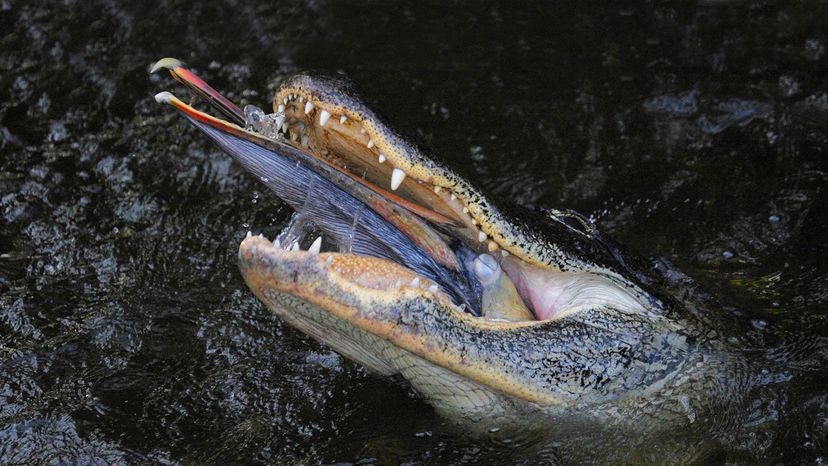
Alligators are some of nature’s oldest prehistoric predators. But what do alligators eat, and what is an alligator's natural prey?
These powerful reptiles are opportunistic carnivores, meaning they’ll chow down on just about anything they can catch. Whether they’re young alligators snapping up insects or adult alligators taking down larger prey, their diet is as diverse as their environment.
Advertisement
In the wild, alligators hunt with patience and precision, waiting for the perfect moment to strike. From small mammals to fish, birds, and even the occasional reptile, American alligators (Alligator mississippiensis) are apex predators that dominate their habitats.


